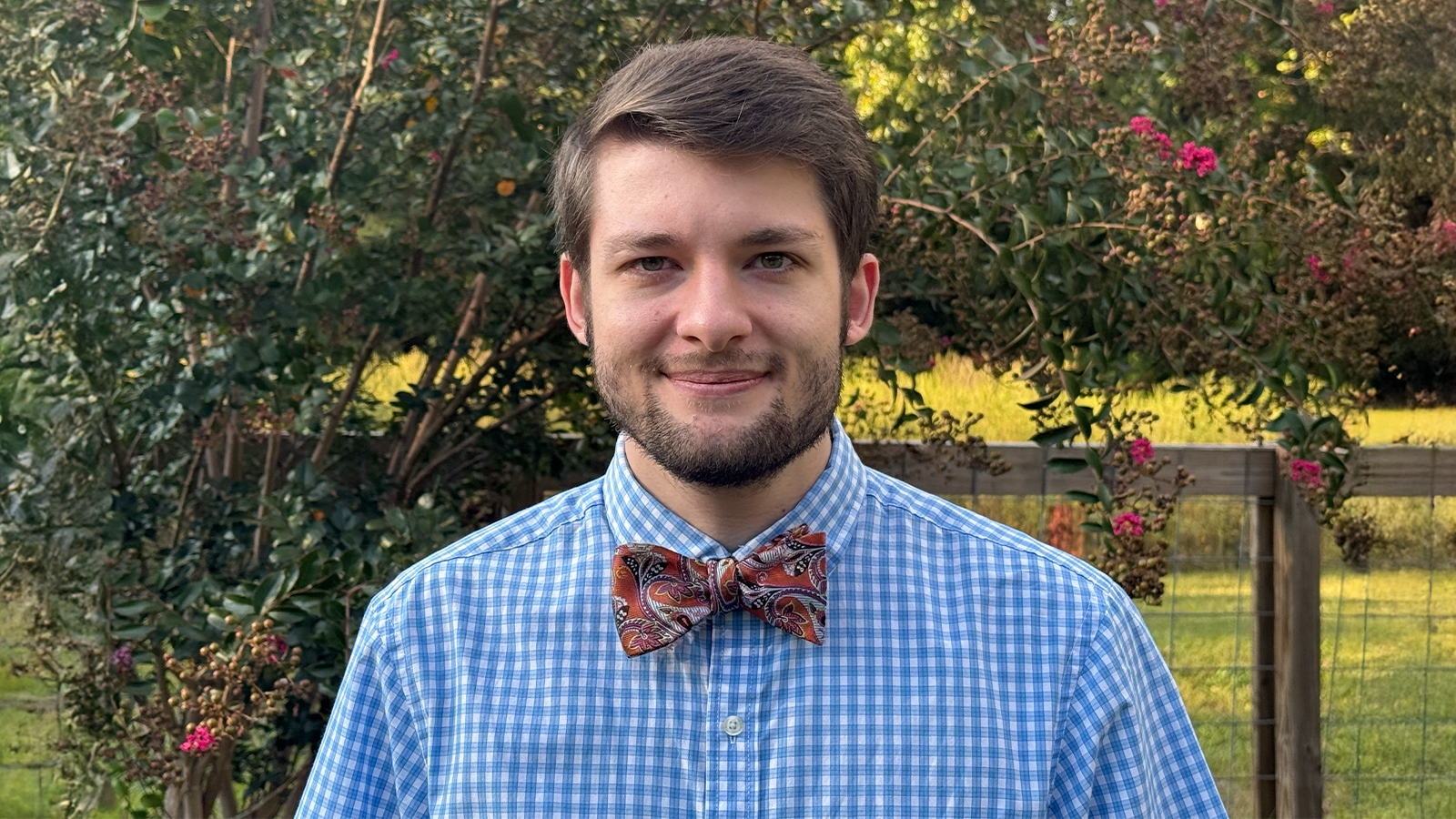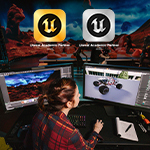Full Sail Stories
Published Oct 21, 2025
What’s Your Job? Meet Noah White, Chief Technology Officer at AudioPilot
The two-time Game Design grad wields his coding skills to develop AI products that assist creatives.

Noah White earned both his bachelor’s and master’s in Game Design at Full Sail University and currently works as the Chief Technology Officer for AudioPilot. At AudioPilot, Noah and his team work together to help writers turn screenplay scripts into audio dramas using AI so they can have a more dynamic product to pitch. In addition to screenplays, AudioPilot also turns written treatments – teasers for a screenplay – into a more compelling audio format.
We chatted with Noah and learned more about what he does at AudioPilot.
What does your typical day-to-day work involve?
As CTO for AudioPilot, I'm the Producer and the Developer at the same time. So my day-to-day could be anything from working on the backend code or the front end in Angular. It kind of just varies on the demands. Some days it's just AI. And I've had months where I didn’t touch the AI and then I have to go back to it, depending on if we're building a new product. I also review everybody's work.
Then I'm also communicating with our business side of things and trying to figure out how to say it in a way where it makes sense for the business person because they don't always understand all the technical mumbo-jumbo. So every day is a little different for me.
What does AudioPilot do?
At AudioPilot, we make people’s stories heard. So for example, if you're a screenwriter and you're trying to get your screenplay in front of a producer, we help you bring your work to life. We take the data and generate it into scenes and add voices. You can select different voices and pick background noises for the scenes, and even adjust the text if maybe one line's not written very well. We also produce audio teasers for treatments that clients use as elevator pitches. These are both unique approaches to get in front of producers.
On the flip side, let's say you're a producer, you're busy, you got a lot of stuff you got to do. You can just listen to a screenplay in the background while you're working on something else instead of having to manually read every single one that comes across your desk.
How does AudioPilot work?
You upload your screenplay and once you assign [the voices and background sounds], you can hit the generation button and then you'll have an audio file that you can download or share the link with anyone. You have full control. But if you’re just like, “hey, just pick something and generate it immediately,” we have that option too. So what clients get is a final audio file that's just the full experience of the screenplay or it's their audio teaser elevator pitch.
Then with our free trials, we try to give you a taste. For example, if you submit a screenplay on our platform, you can do the first five pages. You can see, “is this really for me?” And then if you want, we give you one free regeneration with your trial just to keep playing with it. Then with the audio teaser, we restrict the download and share functionality, so you get the whole thing and you can pay to be able to share it with others.
Tell us about the technical aspects that went into developing this tool.
As far as the technical aspects, there's the database, there's working with AI and figuring out how to get it to recognize the document and break it down. And then taking that structured data and feeding it back to the user in a way that’s intuitive. We also had to figure out our backend infrastructure to be able to store everything and handle the demand.
There's also the management aspect of how we host the AI, like keeping servers up for certain periods of time without failing midway through a generation, for example. There was a lot of different technical challenges we’ve had to overcome.
AudioPilot is an AI tool and, as you know, many creatives are concerned about how AI will impact their career fields. How did you ensure that you were developing a tool that can assist creatives, rather than replace them?
We're not replacing writers or anybody's job. Screenwriters have got to figure out how to stand apart from the competition, and this is just a more creative approach to getting your script in front of the right people or helping a producer [get through scripts more efficiently].
What's your favorite part of your job?
My favorite part of my job is that I run into a lot of problems that I've really never dealt with. With the AI and the type of work we do, there are days where I don't really have anybody to ask for help, so I better figure it out. There’s the annoyance of being stuck on something for a long period of time, but when you figure out what the issue is, the satisfaction is amazing.
What do you feel like you gained from your time at Full Sail?
I feel like my time at Full Sail really built my patience because certain problems that I dealt with at Full Sail were pretty challenging. But it helped me learn a lot about how to deal with those problems outside of school. I feel like I'm just better prepared for the workplace.
What advice would you share for Full Sail students interested in a career like yours?
If you're trying to do this kind of work, it's going to take a lot of dedication. I would say hammer down on a [programming] language and figure it out. Work with different databases, different back ends, different front ends, different frameworks. Just figure out what tools work for you and build from there.



